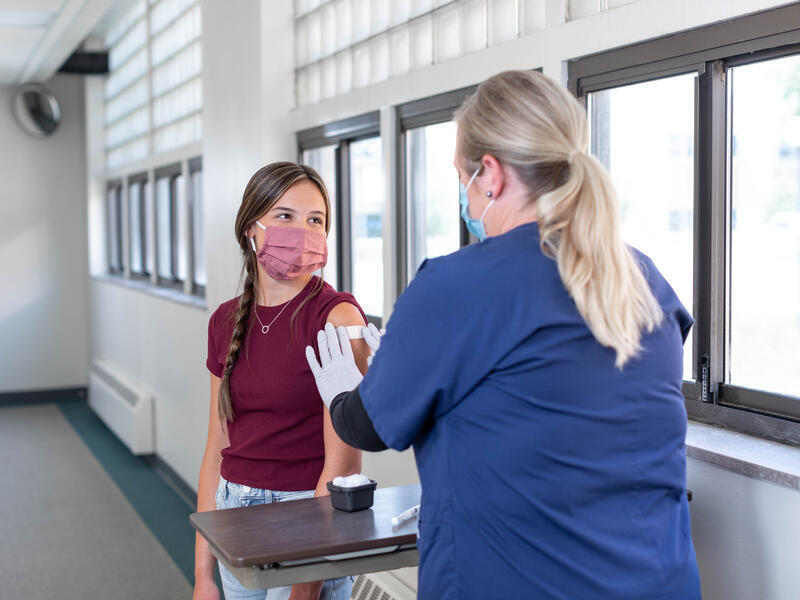A recent study found that the human papillomavirus vaccine decreased cervical cancer rates by 87% for women who received it between ages 12 and 13.
The U.K. study, published in The Lancet, shows that vaccination can help prevent cervical cancer.
What is HPV?
Human papillomavirus (HPV) is the most common sexually transmitted infection in the U.S., and nearly all sexually active adults will be infected the virus at some point in their lives, according to the Centers for Disease Control and Prevention.
Oftentimes, HPV will disappear on its own. In some cases, it can lead to some significant health issues, like genital warts and different types of cancer. It can take 15 to 20 years for cervical cancer to develop in women who have normal immune systems, according to the World Health Organization.
Nearly all cervical cancer cases are linked to HPV.
With HPV-related cervical cancer affecting nearly half a million women worldwide every year, over 100 countries recommend HPV vaccinations for girls.
Some countries have started to vaccinate boys as HPV vaccination prevents genital cancers in males as well as females, and two available vaccines – including the vaccine administered in the United States, Gardasil 9 – also prevent genital warts in males and females, according to the WHO.
“By administering the vaccine in both boys and girls, we significantly decrease the risk of all of those cancers,” said Dr. Maria Bell, a Sanford Health specialist in the treatment of women’s cancers.
A vaccine-preventable cancer
The data for the study came from a population-based cancer registry in the United Kingdom. Scientists from Cancer Research U.K. analyzed cervical cancer rates for women who were vaccinated with Cervarix, an HPV vaccine like Gardasil 9, and those who were unvaccinated. Gardasil 9 covers an additional four HPV infection types (6, 11, 16, and 18).
They found that women who received the vaccine between ages 12 and 13 experienced the greatest reduction in cervical cancer rates at 87%. Those who received it between ages 14 and 16 experienced a 62% reduction, and those ages 16 to 18 had a 34% reduction.
“This is a follow up study showing that the vaccine prevented 87% of cervical cancer – which is what it was designed to do,” Dr. Bell said.
The study followed an HPV vaccination program in that started in 2008. The program confirmed that it was most effective in preventing cancer and precancerous issues when given to young pre-teens and teenagers and has successfully almost eliminated cervical cancer in women born since Sept. 1, 1995.
“This vaccine prevents cancer,” said Andrea Polkinghorn, Sanford Health’s immunization strategy leader. “How cool is that?”
Sanford Health experts recommend vaccine
According to the CDC, 54% of teens were fully vaccinated against HPV in 2020.
Sanford Health recommends early HPV vaccination to protect children before they are ever exposed.
“What is compelling is the estimated reduction in cervical cancer rates by age,” said Polkinghorn. “Meaning, when administered younger there is a greater reduction in the potential to develop cervical cancer.”
Those ages 9 to 14 should receive two doses of the vaccine, while those older than 15 and those who are immunocompromised (ages 9-26) should receive three doses over a 6-month period.
Learn more
- What you need to know about HPV
- Oral, head and neck cancer signs and risks
- Preventive health screenings you should not postpone
…
Posted In Cancer, Children's, Family Medicine, Immunizations, News
